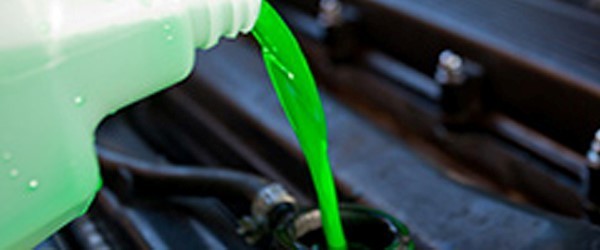Why Fluid Maintenance is Important

Most people know their vehicle’s fluids are lubricants, but these same fluids act as important cleaning agents. And like dishwater, they should be changed regularly. See below just a few examples of these important fluids within your vehicle:
Engine Oil
Engine oil is subjected to extremely high heat due to friction from moving parts in the engine, as well as the combustion process. Engine oil should be changed per your manufacturer’s recommendation, usually between 5,000 and 7,500 miles. Due to the extreme heat, most manufacturers require that a semi-synthetic oil or synthetic oil be used because these oils are designed to withstand the heat and also clean out carbon debris made during the combustion process.
Brake Fluid
Brake fluid is hydroscopic, which means it absorbs moisture from the atmosphere. It is also subjected to extreme heat generated from the friction of your brake pads with your brake rotors. Flushing the brake fluid periodically will remove any moisture from the system, which can cause issues with rust and corrosion inside the brake system. Many manufacturers recommend flushing the brake fluid every 15,000 miles.
Engine Coolant
Engine coolant is subjected to extreme heat in the engine and transfers this extreme heat away from the engine. Its secondary function is to lubricate certain components like the water pump. It also provides heat for your vehicle as it moves through the heater core behind the dash of your car. While it is circulating, it is also collecting microscopic debris from the inside of the engine’s cooling system. Long term, this debris can possibly cause radiator failure. Coolant at 100,000 miles may look the same as coolant with zero miles. The real difference between good and bad coolant is sometimes difficult to see with the naked eye. Coolant contains additives that keep it at a neutral PH. When these chemicals become depleted, the pH rises dramatically in a short period of time. That is why replacing the coolant at the recommended interval from the manufacturer of your vehicle is critical. It is always a good idea to have your coolant checked and chemically tested at least once a year.
Transmission Fluid
Transmission fluid is another victim of extreme heat. It is designed to lubricate the internal parts of the transmission to help the transmission shift. Inside the transmission are friction materials called clutch packs which are hydraulically controlled by the transmission fluid. These clutch packs also make a lot of debris that, left unattended, can clog the valve body. This can cause shift problems and internal damage in the transmission. Also, many new cars have a CVT transmission that operates radically different from conventional automatic transmissions. Follow your manufacturer’s recommendations for fluid service on all transmission types.
Power Steering Fluid
Power steering fluid is subjected to the highest hydraulic pressures of any fluid in your car. This pressure alone creates extreme heat, and over a period of time, the heat and pressure of the fluid will degrade the fluid, as well as cause deterioration to the power steering hoses and seals. The debris from the hoses and seals can damage or clog the valves in the steering rack and cause expensive damage to the system.
Most manufacturers do not have a service interval for power steering fluid exchange. Power steering fluid is not filtered like oil or transmission fluid so it is important to change it when it gets degraded or dirty. It should be noted that some cars now come with electronic power steering and require little or no maintenance.